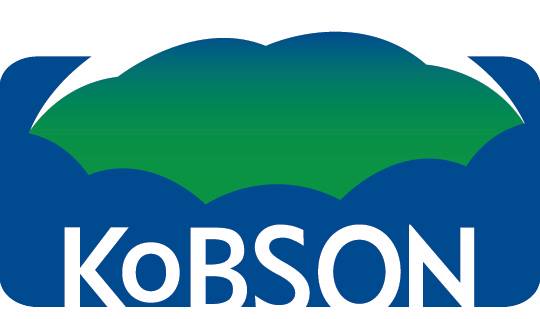DOI: 10.5937/jaes0-47834
This is an open access article distributed under the CC BY 4.0

Volume 22 article 1175 pages: 147-162
The development of cost-effective and environmentally friendly solar thermal technologies that deliver high performance poses several challenges, where the collector and absorber components play a pivotal role. This research addresses these issues by investigating enhanced temperature generation using a 30 cm × 30 cm Fresnel lens collector under solar illumination from a xenon lamp. Natural stone materials (andesite, coal, and pumice), characterized by granular structures with an average diameter of 1.68–2.00 mm, were selected because of their abundance and eco-friendliness. This research is focused on evaluating the effect of Fresnel lens on temperature generation performance. Two types of temperature generation tests were carried out: wet tests (where the natural stone materials were immersed in distilled water) and dry tests (where the natural stone materials were used in dry conditions). The morphologies of the natural stone materials were examined using an optical microscope and scanning electron microscope. Furthermore, the optical properties of the natural stone materials were analyzed using an ultraviolet–visible (UV–VIS) spectrophotometer. The findings revealed that there were significant improvements in the photothermal absorber performance with the use of a Fresnel lens in dry tests, where the highest temperature was achieved for coal (103.25 °C), followed by andesite (89.00 °C) and pumice (73.00 °C). The impurities varied between the materials, where the impurities were most dominant for pumice while coal was more uniform. Further examination using scanning electron microscope showed that all materials had light-trapping structures in the form of rough surfaces, pores, and crack gaps. Andesite was dominated by rough surfaces, while coal and pumice were dominated by crack gaps and pores, respectively. However, based on the UV–VIS spectrophotometric results, there were no correlations between the optical properties (absorbance, reflectance, and transmittance) and temperature achieved by the photothermal absorber materials. This research demonstrates the potential of using natural stone materials as photothermal absorbers in combination with a Fresnel lens collector for low-to-medium temperature solar thermal applications.
This research was funded by Universitas Sebelas Maret under funding scheme Kolaborasi Internasional (KI-UNS) with contract/grant number 228/UN27.22/PT.01.03/2023. The grant is gratefully acknowledged by authors.
1. Y. Bie et al., “Solar medium-low temperature thermal utilization and effect analysis of boundary condition: A tutorial,” Sol. Energy, vol. 197, pp. 238–253, Feb. 2020, doi: 10.1016/j.solener.2020.01.016.
2. S. Olivernesaraj and P. Sethuramalingam, “Atomic Force Microscopy Exploration and Optical Characteristics Analysis of Nanosecond Fiber Laser Micro-textured Single-Crystal Silicon Surfaces,” J. Mater. Eng. Perform., Sep. 2022, doi: 10.1007/s11665-022-07293-3.
3. H. G. Nguyen et al., “Natural Cellulose Fiber-Derived Photothermal Aerogel for Efficient and Sustainable Solar Desalination,” Langmuir, vol. 39, no. 19, pp. 6780–6793, May 2023, doi: 10.1021/acs.langmuir.3c00297.
4. H. Zhang et al., “Porous Hydrogel Photothermal Conversion Membrane to Facilitate Water Purification,” Langmuir, vol. 39, no. 21, pp. 7345–7352, May 2023, doi: 10.1021/acs.langmuir.3c00427.
5. W. Qiu, S. Xiao, Y. Tong, and S. Yang, “Toward Efficient Charge Collection and Light Absorption: A Perspective of Light Trapping for Advanced Photoelectrodes,” J. Phys. Chem. C, vol. 123, no. 31, pp. 18753–18770, Aug. 2019, doi: 10.1021/acs.jpcc.9b01533.
6. A. F. Mohamed, A. A. Hegazi, G. I. Sultan, and E. M. S. El-Said, “Enhancement of a solar still performance by inclusion the basalt stones as a porous sensible absorber: Experimental study and thermo-economic analysis,” Sol. Energy Mater. Sol. Cells, vol. 200, p. 109958, Sep. 2019, doi: 10.1016/j.solmat.2019.109958.
7. A. Bilal, B. Jamil, N. U. Haque, and M. A. Ansari, “Investigating the effect of pumice stones sensible heat storage on the performance of a solar still,” Groundw. Sustain. Dev., vol. 9, p. 100228, Oct. 2019, doi: 10.1016/J.GSD.2019.100228.
8. T. Arunkumar, J. Wang, D. Dsilva Winfred Rufuss, D. Denkenberger, and A. E. Kabeel, “Sensible desalting: Investigation of sensible thermal storage materials in solar stills,” J. Energy Storage, vol. 32, p. 101824, Dec. 2020, doi: 10.1016/j.est.2020.101824.
9. L. B. López-Sosa, A. Ortíz-Carrión, D. Espinosa-Gómez, J. Zárate Medina, and M. González-Avilés, “Solar air heating system with low environmental impact materials: Mathematical model and optothermal characterization,” Sustain. Energy Technol. Assessments, vol. 47, p. 101399, Oct. 2021, doi: 10.1016/j.seta.2021.101399.
10. K. Elmaadawy, A. W. Kandeal, A. Khalil, M. R. Elkadeem, B. Liu, and S. W. Sharshir, “Performance improvement of double slope solar still via combinations of low cost materials integrated with glass cooling,” Desalination, vol. 500, p. 114856, Mar. 2021, doi: 10.1016/j.desal.2020.114856.
11. N. Channa Keshava Naik and K. S. Shashi Shekar, “Evaluation and comparison of performance of a solar pebble absorber collector with a conventional flat plate collector,” Mater. Today Proc., vol. 52, pp. 266–273, 2022, doi: 10.1016/j.matpr.2021.08.025.
12. M. E. H. Attia, A. E. Kabeel, M. E. Zayed, M. Arıcı, and M. Abdelgaied, “Optimal size of spherical rock salt balls as low-cost thermal storage materials for performance augmentation of hemispherical solar distillers: Experimental investigation and thermo-economic analysis,” J. Clean. Prod., vol. 374, p. 134006, Nov. 2022, doi: 10.1016/j.jclepro.2022.134006.
13. M. Elashmawy, “Improving the performance of a parabolic concentrator solar tracking-tubular solar still (PCST-TSS) using gravel as a sensible heat storage material,” Desalination, vol. 473, p. 114182, Jan. 2020, doi: 10.1016/J.DESAL.2019.114182.
14. J. Sun, Z. Zhang, L. Wang, Z. Zhang, and J. Wei, “Comprehensive Review of Line-Focus Concentrating Solar Thermal Technologies: Parabolic Trough Collector (PTC) vs Linear Fresnel Reflector (LFR),” J. Therm. Sci., vol. 29, no. 5, pp. 1097–1124, Oct. 2020, doi: 10.1007/s11630-020-1365-4.
15. A. E. Rungasamy, K. J. Craig, and J. P. Meyer, “A review of linear Fresnel primary optical design methodologies,” Sol. Energy, vol. 224, pp. 833–854, Aug. 2021, doi: 10.1016/j.solener.2021.06.021.
16. K. Pandi, S. Venkatachalapathy, and S. Suresh, “Experimental investigation on low concentration nanofluids with Fresnel lens and evacuated tubes for solar applications,” Int. J. Appl. Ceram. Technol., vol. 19, no. 4, pp. 2236–2248, Jul. 2022, doi: 10.1111/ijac.14010.
17. A. R. Jensen, I. Sifnaios, G. P. Caringal, S. Furbo, and J. Dragsted, “Thermal performance assessment of the world’s first solar thermal Fresnel lens collector field,” Sol. Energy, Mar. 2022, doi: 10.1016/J.SOLENER.2022.01.067.
18. A. Asrori and S. H. Susilo, “The development of Fresnel lens concentrators for solar water heaters: a case study in tropical climates,” EUREKA Phys. Eng., no. 3, pp. 3–10, May 2022, doi: 10.21303/2461-4262.2022.002441.
19. A. Asrori, S. Suparman, S. Wahyudi, and D. Widhiyanuriyawan, “Investigation of steam generation performance on conical cavity receiver by different geometric concentration ratios for fresnel lens solar concentrator,” Eastern-European J. Enterp. Technol., vol. 4, no. 8 (106), pp. 6–14, Aug. 2020, doi: 10.15587/1729-4061.2020.209778.
20. A. Asrori, S. Suparman, S. Wahyudi, and D. Widhiyanuriyawan, “An experimental study of solar cooker performance with thermal concentrator system by spot Fresnel lens,” Eastern-European J. Enterp. Technol., vol. 5, no. 8 (107), pp. 31–41, Oct. 2020, doi: 10.15587/1729-4061.2020.208638.
21. F. L. Rashid, M. A. Al-Obaidi, A. J. Mahdi, and A. Ameen, “Advancements in Fresnel Lens Technology across Diverse Solar Energy Applications: A Comprehensive Review,” Energies, vol. 17, no. 3, p. 569, Jan. 2024, doi: 10.3390/en17030569.
22. J. Hong et al., “Photothermal Chemistry Based on Solar Energy: From Synergistic Effects to Practical Applications,” Adv. Sci., vol. 9, no. 3, p. 2103926, Jan. 2022, doi: 10.1002/advs.202103926.
23. Z. Bao, N. Bing, H.-R. Yao, Y. Zhang, H. Xie, and W. Yu, “Three-Dimensional Interpenetrating Network Phase-Change Composites with High Photothermal Conversion and Rapid Heat Storage and Release,” ACS Appl. Energy Mater., vol. 4, no. 8, pp. 7710–7720, Aug. 2021, doi: 10.1021/acsaem.1c01061.
24. W. Zhang, Z. Ling, X. Fang, and Z. Zhang, “Anisotropically conductive Mg(NO3)2·6H2O/g-C3N4-graphite sheet phase change material for enhanced photo-thermal storage,” Chem. Eng. J., vol. 430, p. 132997, Feb. 2022, doi: 10.1016/j.cej.2021.132997.
25. Y. Liu et al., “All‐Day Anti‐Icing/De‐Icing Coating by Solar‐Thermal and Electric‐Thermal Effects,” Adv. Mater. Technol., vol. 6, no. 11, p. 2100371, Nov. 2021, doi: 10.1002/admt.202100371.
26. W. Wang, F. Ye, J. Dutta, and B. Laumert, “Photothermal performance of three chromia-forming refractory alloys for high-temperature solar absorber applications,” Appl. Therm. Eng., vol. 225, p. 120189, May 2023, doi: 10.1016/j.applthermaleng.2023.120189.
27. W. Zhu, X. Zuo, Y. Ding, H. Yan, Y. An, and W. Yang, “Experimental investigation on the photothermal conversion performance of cuttlefish ink nanofluids for direct absorption solar collectors,” Appl. Therm. Eng., vol. 221, p. 119835, Feb. 2023, doi: 10.1016/j.applthermaleng.2022.119835.
28. P. Mu et al., “Conductive hollow kapok fiber-PPy monolithic aerogels with excellent mechanical robustness for efficient solar steam generation,” J. Mater. Chem. A, vol. 7, no. 16, pp. 9673–9679, 2019, doi: 10.1039/C8TA12243A.
29. J. Jia, W. Liang, H. Sun, Z. Zhu, C. Wang, and A. Li, “Fabrication of bilayered attapulgite for solar steam generation with high conversion efficiency,” Chem. Eng. J., vol. 361, pp. 999–1006, Apr. 2019, doi: 10.1016/j.cej.2018.12.157.
30. H. W. Lim, S. H. Park, and S. J. Lee, “3D thermoresponsive hydrogel with enhanced water uptake and active evaporation for effective interfacial solar steam generation,” Desalination, vol. 550, p. 116368, Mar. 2023, doi: 10.1016/j.desal.2022.116368.
31. C.-Y. Zhao et al., “Falling film evaporation in a triangular tube bundle under the influence of cross vapor stream,” Int. J. Refrig., vol. 112, pp. 44–55, Apr. 2020, doi: 10.1016/j.ijrefrig.2019.12.028.
32. A. Rajiv Krishnan and K. D, “Influence of heat absorber materials sand, soil and paraffin wax in solar still on sustainable water distillation,” Case Stud. Chem. Environ. Eng., vol. 8, p. 100365, Dec. 2023, doi: 10.1016/j.cscee.2023.100365.
33. E. H. Alaskaree, “An experimental investigation of the solar distiller basin’s performance using a flat mirror and vertical barriers,” Case Stud. Chem. Environ. Eng., vol. 8, p. 100416, Dec. 2023, doi: 10.1016/j.cscee.2023.100416.
34. V. Sousa and I. Meireles, “Dynamic simulation of the energy consumption and carbon emissions for domestic hot water production in a touristic region,” J. Clean. Prod., vol. 355, p. 131828, Jun. 2022, doi: 10.1016/j.jclepro.2022.131828.
35. M. Z. Pomianowski, H. Johra, A. Marszal-Pomianowska, and C. Zhang, “Sustainable and energy-efficient domestic hot water systems: A review,” Renew. Sustain. Energy Rev., vol. 128, p. 109900, Aug. 2020, doi: 10.1016/j.rser.2020.109900.
36. M. Wirawan, M. Mirmanto, and I. Fahrurrozi, “The Influence of the Tilt Angle of a Flat Plate Solar Collector with Granite Stone Absorber on Its Performance,” Int. J. Adv. Eng. Manag., vol. 5, no. 4, pp. 1234-1238 w, 2023, doi: 10.35629/5252-050412341238.
37. R. Kumar et al., “Experimental investigation of impact of the energy storage medium on the thermal performance of double pass solar air heater,” Sustain. Energy Technol. Assessments, vol. 48, p. 101673, Dec. 2021, doi: 10.1016/j.seta.2021.101673.
38. C. Zing, S. Mahjoob, and K. Vafai, “Analysis of porous filled heat exchangers for electronic cooling,” Int. J. Heat Mass Transf., vol. 133, pp. 268–276, Apr. 2019, doi: 10.1016/j.ijheatmasstransfer.2018.12.067.
39. X. Zhai, H. Ge, T. Wang, C.-M. Shu, and J. Li, “Effect of water immersion on active functional groups and characteristic temperatures of bituminous coal,” Energy, vol. 205, p. 118076, Aug. 2020, doi: 10.1016/j.energy.2020.118076.
40. A. Midilli, “Determination of pistachio drying behaviour and conditions in a solar drying system,” Int. J. Energy Res., vol. 25, no. 8, pp. 715–725, Jun. 2001, doi: 10.1002/er.715.
41. M. Vinod, M. Raghuraman, and V. M. Chakravarthi, “Experimental Investigation of Paddy Grain Drying Mechanism,” 2020, pp. 135–143.
42. E. Duque-Dussán, J. R. Sanz-Uribe, and J. Banout, “Design and evaluation of a hybrid solar dryer for postharvesting processing of parchment coffee,” Renew. Energy, vol. 215, p. 118961, Oct. 2023, doi: 10.1016/j.renene.2023.118961.
43. F. Kulapichitr, C. Borompichaichartkul, I. Suppavorasatit, and K. R. Cadwallader, “Impact of drying process on chemical composition and key aroma components of Arabica coffee,” Food Chem., vol. 291, pp. 49–58, Sep. 2019, doi: 10.1016/j.foodchem.2019.03.152.
44. A. Lingayat, R. Balijepalli, and V. P. Chandramohan, “Applications of solar energy based drying technologies in various industries – A review,” Sol. Energy, vol. 229, pp. 52–68, Nov. 2021, doi: 10.1016/j.solener.2021.05.058.
45. S. H. Farjana, N. Huda, and M. A. P. Mahmud, “Industry-Specific Utilization of Solar Industrial Process Heat (SHIP),” in Nanostructured Materials for Next-Generation Energy Storage and Conversion, Berlin, Heidelberg: Springer Berlin Heidelberg, 2019, pp. 409–438.
46. L. Wang, Y. Feng, K. Wang, and G. Liu, “Solar water sterilization enabled by photothermal nanomaterials,” Nano Energy, vol. 87, p. 106158, Sep. 2021, doi: 10.1016/j.nanoen.2021.106158.
47. A. S. Isah, S. H. Bt Shafiai, H. B. Takaijudin, B. Singh Mahinder Singh, and S. I. U. H. Gilani, “The role of desalination and contribution of hybrid solar desalination system towards primary health care,” Case Stud. Chem. Environ. Eng., vol. 6, p. 100253, Dec. 2022, doi: 10.1016/j.cscee.2022.100253.
48. P. Udomkun et al., “Review of solar dryers for agricultural products in Asia and Africa: An innovation landscape approach,” J. Environ. Manage., vol. 268, p. 110730, Aug. 2020, doi: 10.1016/j.jenvman.2020.110730.
49. H. Liu, J. Y. Lim, B. Wint Hnin Thet, P.-Y. Lai, and W. S. Koh, “Evaluating the impact of tree morphologies and planting densities on outdoor thermal comfort in tropical residential precincts in Singapore,” Build. Environ., vol. 221, p. 109268, Aug. 2022, doi: 10.1016/j.buildenv.2022.109268.
50. W. W. Burchett, A. R. Ellis, S. W. Harrar, and A. C. Bathke, “Nonparametric Inference for Multivariate Data: The R Package npmv,” J. Stat. Softw., vol. 76, no. 4, 2017, doi: 10.18637/jss.v076.i04.
51. S. Ma, W. Qarony, M. I. Hossain, C. T. Yip, and Y. H. Tsang, “Metal-organic framework derived porous carbon of light trapping structures for efficient solar steam generation,” Sol. Energy Mater. Sol. Cells, vol. 196, pp. 36–42, Jul. 2019, doi: 10.1016/j.solmat.2019.02.035.
52. Y. Li et al., “Manipulating light trapping and water vaporization enthalpy via porous hybrid nanohydrogels for enhanced solar-driven interfacial water evaporation with antibacterial ability,” J. Mater. Chem. A, vol. 7, no. 47, pp. 26769–26775, 2019, doi: 10.1039/C9TA09820H.
53. R. Gao et al., “Light trapping induced flexible wrinkled nanocone SERS substrate for highly sensitive explosive detection,” Sensors Actuators B Chem., vol. 314, p. 128081, Jul. 2020, doi: 10.1016/j.snb.2020.128081.
54. X. Yu et al., “Enhancement of photo-thermal performance using hole plasmonic nanofluids,” Appl. Therm. Eng., vol. 236, p. 121868, Jan. 2024, doi: 10.1016/j.applthermaleng.2023.121868.
55. A. Chen et al., “Magnetic-directed fillers migration during micro-injection molding of magnetic polypropylene nanocomposite surfaces with uplifted light trapping microarchitectures for freezing delay and photothermal-enhanced de-icing,” Appl. Therm. Eng., vol. 230, p. 120810, Jul. 2023, doi: 10.1016/j.applthermaleng.2023.120810.
56. Q. Huang, C. Du, and C. Huang, “Nature-inspired pyramid-shaped 3-dimensional structure for cost-effective heat-localized solar evaporation with high efficiency and salt localization,” Appl. Therm. Eng., vol. 215, p. 118950, Oct. 2022, doi: 10.1016/j.applthermaleng.2022.118950.
57. W. He, L. Zhou, M. Wang, Y. Cao, X. Chen, and X. Hou, “Structure development of carbon-based solar-driven water evaporation systems,” Sci. Bull., vol. 66, no. 14, pp. 1472–1483, Jul. 2021, doi: 10.1016/j.scib.2021.02.014.
58. X.-H. Gao, Z.-M. Guo, Q.-F. Geng, P.-J. Ma, and G. Liu, “Microstructure and Optical Properties of SS/Mo/Al2O3 Spectrally Selective Solar Absorber Coating,” J. Mater. Eng. Perform., vol. 26, no. 1, pp. 161–167, Jan. 2017, doi: 10.1007/s11665-016-2445-1.
59. M. Amjad, H. Jin, X. Du, and D. Wen, “Experimental photothermal performance of nanofluids under concentrated solar flux,” Sol. Energy Mater. Sol. Cells, vol. 182, pp. 255–262, Aug. 2018, doi: 10.1016/j.solmat.2018.03.044.
60. P. Kalidoss, S. G. Venkatachalapathy, and S. Suresh, “Photothermal performance of hybrid nanofluids with different base fluids for solar energy applications,” Energy Sources, Part A Recover. Util. Environ. Eff., pp. 1–16, Jun. 2021, doi: 10.1080/15567036.2021.1936697.
61. M. Mehrali, M. K. Ghatkesar, and R. Pecnik, “Full-spectrum volumetric solar thermal conversion via graphene/silver hybrid plasmonic nanofluids,” Appl. Energy, vol. 224, pp. 103–115, Aug. 2018, doi: 10.1016/j.apenergy.2018.04.065.
62. Z. Li, A. Kan, K. Wang, Y. He, N. Zheng, and W. Yu, “Optical properties and photothermal conversion performances of graphene based nanofluids,” Appl. Therm. Eng., vol. 203, p. 117948, Feb. 2022, doi: 10.1016/j.applthermaleng.2021.117948.
63. J. Qu, L. Shang, Q. Sun, X. Han, and G. Zhou, “Photo-thermal characteristics of water-based graphene oxide (GO) nanofluids at reverse-irradiation conditions with different irradiation angles for high-efficiency solar thermal energy harvesting,” Renew. Energy, vol. 195, pp. 516–527, Aug. 2022, doi: 10.1016/j.renene.2022.06.049.
64. X. Zuo et al., “Silicon dioxide coating nanocomposites and cellulose-modified stable nanofluid for direct absorption solar collection,” Sol. Energy, vol. 262, p. 111797, Sep. 2023, doi: 10.1016/j.solener.2023.111797.
65. J. Wen, X. Li, W. Chen, and J. Liu, “Systematical investigation on the solar-thermal conversion performance of TiN plasmonic nanofluids for the direct absorption solar collectors,” Colloids Surfaces A Physicochem. Eng. Asp., vol. 624, p. 126837, Sep. 2021, doi: 10.1016/j.colsurfa.2021.126837.
66. E. Abed, R.N; Abded, A.R.N; Yousif, “Carbon Surfaces Doped with (Co3O4-Cr2O3) Nanocomposite for High-Temperature Photo Thermal Solar Energy Conversion Via Spectrally Selective Surfaces,” Prog. Color. Color. Coatings J., vol. 14, no. 1, pp. 301–3015, 2021, doi: 10.30509/PCCC.2021.166749.1098.
67. K. Han, Y. Wang, S. Wang, Q. Liu, Z. Deng, and F. Wang, “Narrowing band gap energy of CeO2 in (Ni/CeO2)@SiO2 catalyst for photothermal methane dry reforming,” Chem. Eng. J., vol. 421, p. 129989, Oct. 2021, doi: 10.1016/j.cej.2021.129989.







